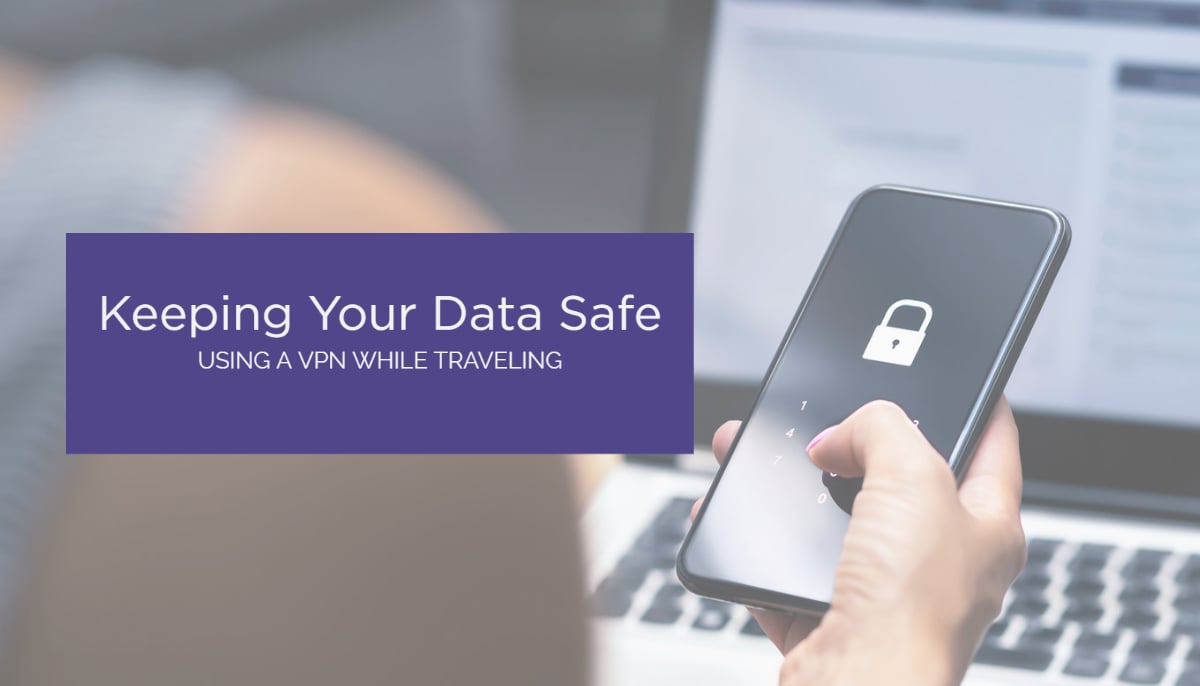All experienced travel nurses and allied pros know how to make a hotel room their home. Many know the check-in and check-out protocols of Airbnbs and Furnished Finders by heart, and they know the importance of keeping their equipment and belongings safe and secure during their stays. However, what about the Wi-Fi? A secure Wi-Fi network is just as important as a good lock on your door. Don’t forget to secure your internet connection at any hotel or rental, specifically when connecting to free Wi-Fi.
 The Problem with Public Wi-Fi
The Problem with Public Wi-Fi
Hotels often offer open, public networks that virtually anyone can connect to (and we mean anyone). And, because anyone can connect to these networks, anyone will, whether they are a guest of the hotel or, in some cases, a hacker. While everyone is connected to this same large network, hackers are able to navigate the network and work their way into guests’ computers, phones, and other devices where they can sometimes spy on the guests’ browsing history or upload malware to their devices.
While it may seem easier to see how a hacker could infiltrate a large hotel network where there are hundreds of people connected at once, it’s important to know that the same thing can happen in a slightly different way over smaller private rental networks. In these cases, previous guests of the rentals could always rig the networks to automatically collect the information that guests share over their Wi-Fi networks, and then use that information later after guests have left. For example, a previous guest could track your login to an online bank account and then use that logged bank information later to access the account for themselves.
How Using a VPN Can Help
VPNs, or virtual private networks, are certainly the best thing you can use to protect yourself when you must use a public Wi-Fi network. VPNs work by creating a protective “tunnel” that your device uses to connect directly to a remote VPN server, and this tunnel is impenetrable to any other user, keeping your browsing secure. Take that hackers!
For people who use public Wi-Fi networks for their work, using a VPN means keeping all data they log safe and secure. Without using a VPN, they risk a hacker getting a hold of this information. Hackers have also been known to spread malware to business and government devices by logging into email accounts through hotel Wi-Fi networks, too.
How to Choose a VPN
Unfortunately, hackers know that many people use VPNs to protect themselves, and they have already put out fake VPNs of their own designed to mine user data rather than protect it. However, finding a secure VPN isn’t difficult if you know what to look for.
When choosing a VPN, always be wary of free options as they may be malware. Some extremely inexpensive VPNs may be malware too. In general, it’s best to use trusted names in the VPN world that have been around for years, such as ExpressVPN, NordVPN, and Surfshark.
Other Tips for Internet Security While at a Hotel
A VPN is your best friend when it comes to internet security at a hotel or in a private rental. But if you can’t set up a VPN the second you get to your home away from home, there are some other things you can try. For instance, be sure to:
- Never login to important online accounts on open Wi-Fi, from bank accounts to work profiles
- Use a personal or mobile hotspot instead of open Wi-Fi when possible
- Enable DNS over HTTPS (DoH) on web browsers for added encryption, no matter the network you are connected to
For all professionals working allied or travel nurse jobs, securing their computers and devices should be as important and easy to do as locking their doors. With a VPN, these travelers can be sure that their online information is safe and secure.